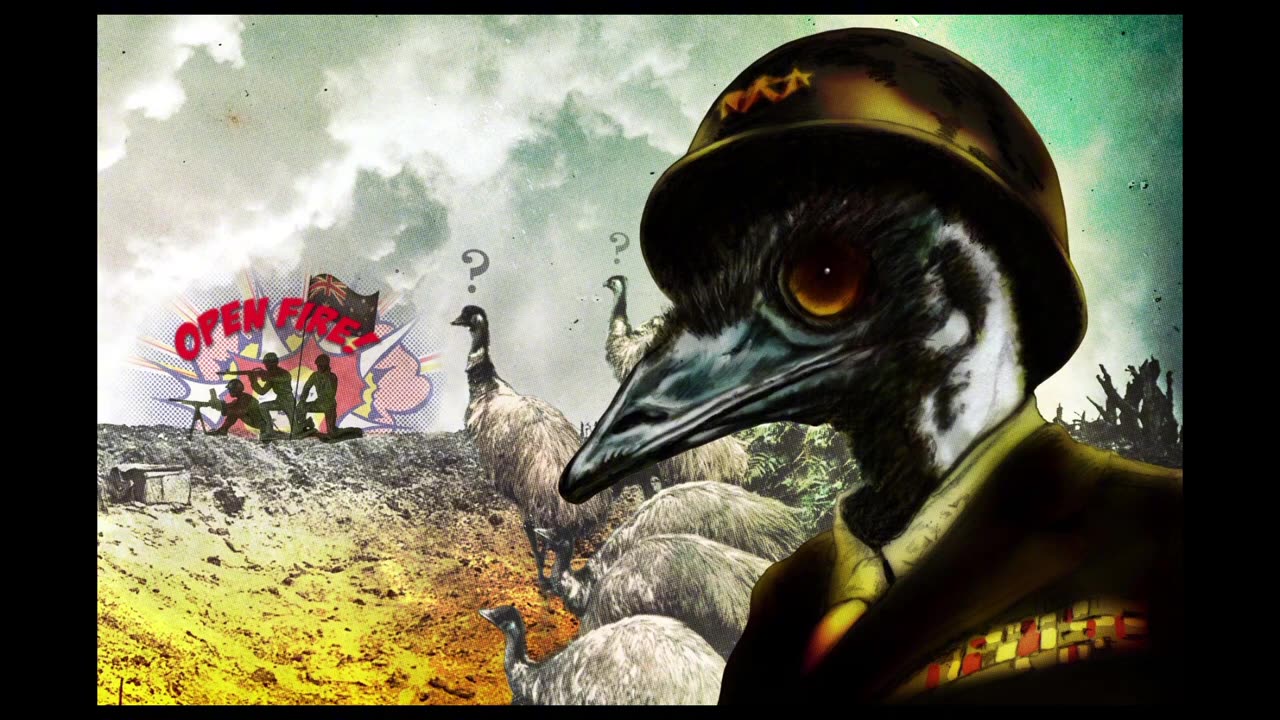Premium Only Content

The Great Emu War: When Australia declared war on emus and lost
In the annals of unconventional military history, there exists a peculiar chapter that unfolds in the Australian outback—an episode known as "The Great Emu War." This whimsical conflict, waged between humans and flightless emus, is a tale of agricultural frustration, misguided military endeavors, and an unexpected foe that proved more resilient than anticipated.
I. Feathered Invaders: Emus and Agricultural Woes
The stage was set in 1932, in the aftermath of World War I, when Australia faced economic challenges, exacerbated by the Great Depression. Farmers in Western Australia found themselves contending with a new adversary: emus. These large, flightless birds, driven by drought and habitat destruction, descended upon farmlands, ravaging crops and exacerbating the hardships faced by struggling farmers.
II. A Call to Arms: Emus vs. the Australian Military
Frustrated by the relentless onslaught of emus and the damage wrought upon their crops, farmers sought government intervention. In an unexpected twist, the Australian government responded by dispatching the military to wage war on the feathery invaders. What ensued was an attempt to combine military tactics with the goal of culling the emu population.
III. "Operation Avian Massacre": The Military Campaign
Armed with Lewis machine guns and soldiers equipped with an unusual adversary, "Operation Avian Massacre" was launched. The plan was to use trucks to transport soldiers armed with machine guns to regions frequented by emus. However, the agility and speed of the emus proved to be a formidable challenge for the human military contingent.
IV. The Unraveling Campaign: Emus 1, Humans 0
As the campaign unfolded, it became apparent that emus were not easily deterred by the military's efforts. The birds scattered in unpredictable patterns, making them elusive targets for the soldiers. Despite initial optimism, the military's campaign failed to make a significant dent in the emu population. Reports of the emus' resilience and the humorous spectacle of soldiers chasing birds dominated headlines.
V. Surrender and Aftermath
In December 1932, faced with mounting public amusement and a lack of success, the Australian government decided to withdraw the military from the emu frontlines. The emus, it seemed, had emerged victorious in this comical conflict, leaving behind a legacy of an unconventional war that showcased the futility of using traditional military tactics against an unorthodox adversary.
Conclusion:
The Great Emu War stands as a quirky footnote in Australian history, blending the absurdity of human-wildlife conflict with the unintended consequences of attempting to wage war against nature. The emus, once perceived as agricultural foes, became unlikely victors in a lighthearted conflict that continues to captivate imaginations and serves as a reminder that even the most unconventional battles can leave an indelible mark on the pages of history.
-
 55:05
55:05
The Dan Bongino Show
3 hours agoAmerica Is Back In The World Stage, And We Love To See It (Ep. 2433) - 02/28/2025
481K773 -
 49:29
49:29
The Rubin Report
2 hours agoDetails About Joy Reid’s Weeping Farewell No One Noticed with Co-Host Megyn Kelly
9.74K19 -
 LIVE
LIVE
Benny Johnson
2 hours ago🚨Epstein Files COVERUP EXPOSED: FBI Sabotaging Trump, DELETING Evidence?! | Tapes 'MISSING'?!
15,970 watching -
 59:29
59:29
Steven Crowder
3 hours agoCrafting Crowder's Comedy Gold | Behind the Scenes
172K87 -
 2:06:44
2:06:44
Tim Pool
2 hours agoTHE END OF THE WEST, Will We Survive Without Christianity? | The Culture War with Tim Pool
56.8K39 -
 LIVE
LIVE
Right Side Broadcasting Network
3 hours agoLIVE: President Trump and Ukrainian President Zelenskyy Meet and Hold a Press Briefing - 2/28/25
6,125 watching -
 LIVE
LIVE
LFA TV
16 hours agoBODYCAM FOOTAGE OF TRAFFIC STOP! | LIVE FROM AMERICA 2.28.25 11AM
4,514 watching -
 LIVE
LIVE
The Big Mig™
4 hours agoGlobal Finance Forum From Bullion To Borders We Cover It All
2,207 watching -
 31:13
31:13
Tudor Dixon
2 hours agoThe Last Supper with Chris Tomlin | The Tudor Dixon Podcast
11.9K -
 48:58
48:58
BonginoReport
4 hours agoFake Epstein Files Fallout + Will Cain on the Government’s Internal Civil War (Ep.150) - 02/28/2025
119K246